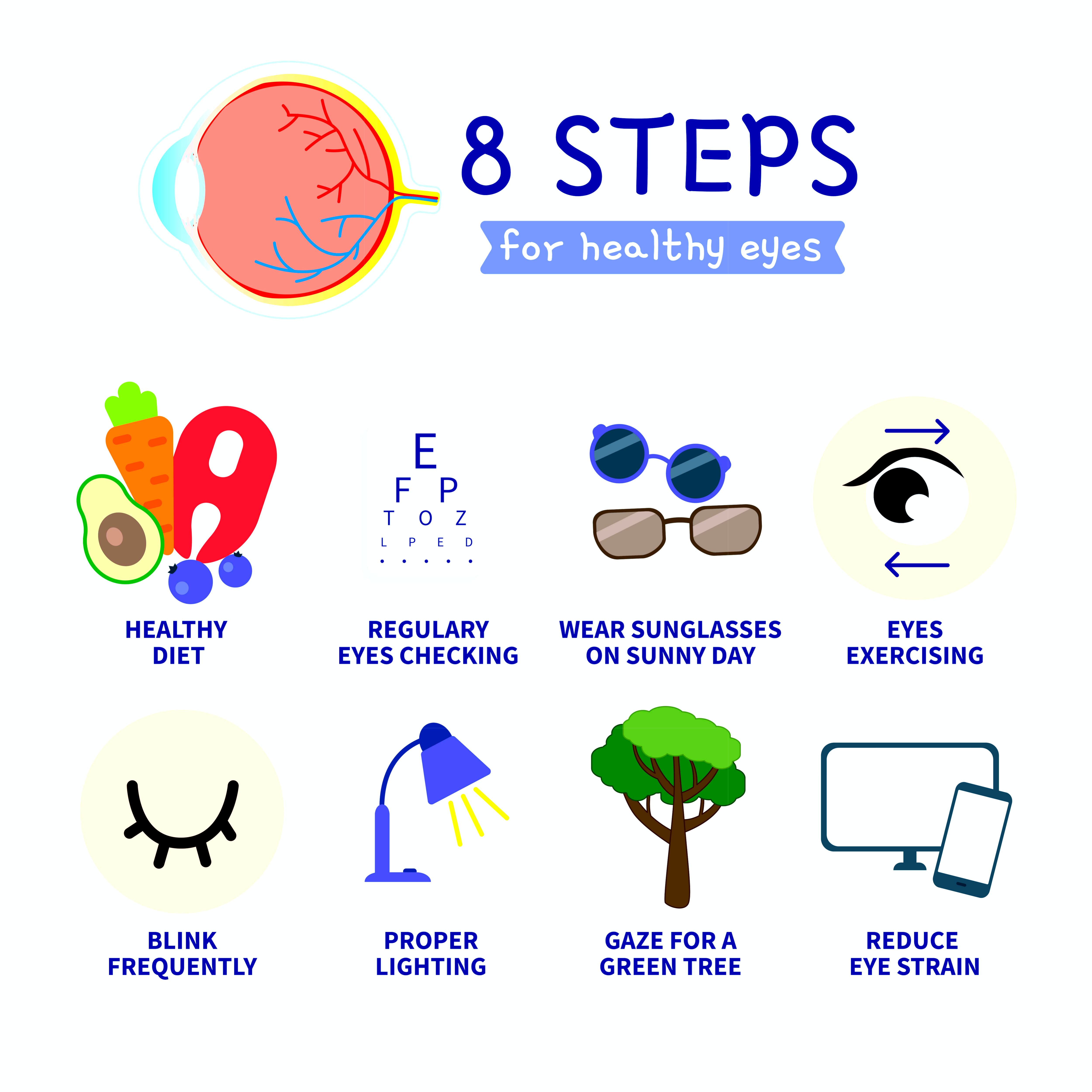All Categories
Featured
Chronic eye conditions, such as glaucoma, macular deterioration, and diabetic person retinopathy, call for recurring like protect vision and preserve quality of life. Efficient management of these conditions includes a mix of clinical treatment, way of living adjustments, and routine surveillance. Right here's exactly how patients can organize their eye health and handle chronic eye problems successfully.
Among the most critical steps in managing persistent eye problems is adhering to your medical professional's recommendations. This includes:
![]()
Using proposed drugs: Take eye declines, dental medicines, or injections as routed to manage signs or slow illness progression.
Attending regular check-ups: Frequent sees to an eye treatment professional enable for timely adjustments to your therapy strategy and early detection of adjustments in your condition.
Going through needed procedures: Some conditions, like glaucoma or retinal problems, may need surgical or laser treatments to stop further damages.
Your general health and wellness considerably impacts your eye health and wellness. Adopting a healthy way of living can reduce the danger of difficulties and enhance end results.
Consume a well balanced diet plan: Nutrient-rich foods, such as leafy environment-friendlies, fish high in omega-3 fatty acids, and fruits, container sustain eye health and wellness.
Exercise frequently: Physical activity enhances blood circulation, which profits the eyes by guaranteeing they get ample oxygen and nutrients.
Manage persistent conditions: If you have diabetes, high blood pressure, or various other systemic conditions, keep them under control to stop worsening eye concerns.
Avoid smoking cigarettes: Smoking cigarettes boosts the risk of establishing or exacerbating persistent eye problems, including macular degeneration and cataracts.
![]()
Avoiding more damages to your eyes is crucial in managing chronic problems:
Put on safety eyewear: Usage sunglasses with UV protection to shield your eyes from damaging rays and decrease the threat of issues.
Limit screen time: Too much screen direct exposure can strain your eyes. Exercise the 20-20-20 policy-- take a look at something 20 feet away for 20 secs every 20 minutes.
Keep appropriate lighting: Avoid stressing your eyes by ensuring adequate lights when reviewing or functioning.
Recognizing your problem equips you to make enlightened decisions concerning your treatment. Ask your eye treatment carrier regarding:
The development and prospective end results of your condition.
Symptoms and signs that call for immediate attention.
Offered sources, such as support system and academic products.
![]()
Dealing with a chronic eye condition can be psychologically challenging. Consider:
Joining assistance groups: Sharing experiences with others in comparable situations can offer convenience and functional pointers.
Talking to a therapist: Professional assistance can help you deal with the psychological impact of vision adjustments.
Conclusion
Handling chronic eye problems calls for a extensive and proactive strategy. By following clinical advice, embracing a healthy way of life, protecting your eyes, and seeking assistance, you can successfully browse the difficulties of these conditions and maintain your vision. Regular interaction with your eye care provider is important to ensure your administration strategy stays effective and customized to your needs.
- Comply With Medical Recommendations and Treatment Strategies
Among the most critical steps in managing persistent eye problems is adhering to your medical professional's recommendations. This includes:

Using proposed drugs: Take eye declines, dental medicines, or injections as routed to manage signs or slow illness progression.
Attending regular check-ups: Frequent sees to an eye treatment professional enable for timely adjustments to your therapy strategy and early detection of adjustments in your condition.
Going through needed procedures: Some conditions, like glaucoma or retinal problems, may need surgical or laser treatments to stop further damages.
- Preserve a Healthy Way Of Living
Your general health and wellness considerably impacts your eye health and wellness. Adopting a healthy way of living can reduce the danger of difficulties and enhance end results.
Consume a well balanced diet plan: Nutrient-rich foods, such as leafy environment-friendlies, fish high in omega-3 fatty acids, and fruits, container sustain eye health and wellness.
Exercise frequently: Physical activity enhances blood circulation, which profits the eyes by guaranteeing they get ample oxygen and nutrients.
Manage persistent conditions: If you have diabetes, high blood pressure, or various other systemic conditions, keep them under control to stop worsening eye concerns.
Avoid smoking cigarettes: Smoking cigarettes boosts the risk of establishing or exacerbating persistent eye problems, including macular degeneration and cataracts.
- Protect Your Eyes

Avoiding more damages to your eyes is crucial in managing chronic problems:
Put on safety eyewear: Usage sunglasses with UV protection to shield your eyes from damaging rays and decrease the threat of issues.
Limit screen time: Too much screen direct exposure can strain your eyes. Exercise the 20-20-20 policy-- take a look at something 20 feet away for 20 secs every 20 minutes.
Keep appropriate lighting: Avoid stressing your eyes by ensuring adequate lights when reviewing or functioning.
- Inform Yourself
Recognizing your problem equips you to make enlightened decisions concerning your treatment. Ask your eye treatment carrier regarding:
The development and prospective end results of your condition.
Symptoms and signs that call for immediate attention.
Offered sources, such as support system and academic products.
- Seek Emotional Support

Dealing with a chronic eye condition can be psychologically challenging. Consider:
Joining assistance groups: Sharing experiences with others in comparable situations can offer convenience and functional pointers.
Talking to a therapist: Professional assistance can help you deal with the psychological impact of vision adjustments.
Conclusion
Handling chronic eye problems calls for a extensive and proactive strategy. By following clinical advice, embracing a healthy way of life, protecting your eyes, and seeking assistance, you can successfully browse the difficulties of these conditions and maintain your vision. Regular interaction with your eye care provider is important to ensure your administration strategy stays effective and customized to your needs.
Latest Posts
Explore WyHy FCU – Top Benefits for Your Financial Future
Published May 25, 25
2 min read
Boost Your Home's Outside with Weathercraft's Exterior siding Solutions
Published May 23, 25
1 min read
Don’t Miss Special Auto Repair Offers in Chicago at Montclare Auto Repair
Published May 18, 25
1 min read
More
Latest Posts
Explore WyHy FCU – Top Benefits for Your Financial Future
Published May 25, 25
2 min read
Boost Your Home's Outside with Weathercraft's Exterior siding Solutions
Published May 23, 25
1 min read
Don’t Miss Special Auto Repair Offers in Chicago at Montclare Auto Repair
Published May 18, 25
1 min read